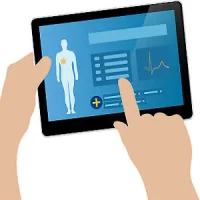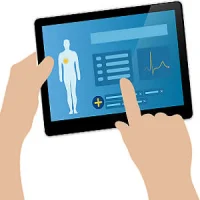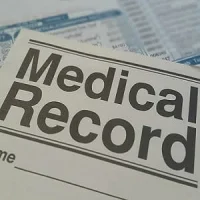Not a few physicians have raised complaints about the "burden" of EHR documentation. It comes as no surprise that copy and paste in electronic health records is a common shortcut used by physicians, as shown by some studies. Use of copy and paste may be convenient, although this can potentially lead to serious safety risks. As a recent study in Journal of the American Medical Association notes:
"Copying or importing text increases the risk of including outdated, inaccurate, or unnecessary information, which can undermine the utility of notes and lead to a clinical error."
An example of what can happen when notation gets lazy is shared by Shannon Dean, MD, CMIO at University of Wisconsin School of Medicine and Public Health, in her article in Perspectives on Patient Safety published by the Agency for Healthcare Research and Quality. She narrates how a 78-year-old man who, "with an alleged history of 'PE' (interpreted by the clinicians as pulmonary embolism) received an unnecessary CT scan to rule out a suspected 'recurrence' of pulmonary embolus.
"As it happens, years earlier, the abbreviation 'PE' had been used in the electronic note to indicate that the patient had had a physical examination, not a pulmonary embolism!" said Dr. Dean. "In a vivid example of copy and paste, once the diagnosis of pulmonary embolism was mistakenly given to the patient, it lived on in the EHR."
Beyond the risks to patient safety, the above example also points to the unnecessary costs that can pile up when unwitting clinicians order tests that are based on erroneous and repetitive data.
With copy and paste in EHR rampant, Dr. Dean says hospitals and clinics should start making use of resources such as AHIMA's toolkits, Epic's auditing features and innovations like natural language processing technology to help physicians do better with their EHR documentation.
She also points to the OpenNotes initiative, which continues to gain momentum, as another big opportunity: Giving patients access to their own doctor's clinical notes allows them to "hold us accountable for quality documentation."
But at the end of the day, "physicians need to re-establish ownership of the accuracy of clinical documentation," Dr. Dean pointed out. "We must stop blaming the EHR for our carelessness and start educating ourselves about how to use documentation efficiency tools, including copy and paste, more responsibly."
Source: Healthcare IT News
Image Credit: Pixabay
Latest Articles
EHR, EHR documentation, copy-pasting
Not a few physicians have raised complaints about the "burden" of EHR documentation. It comes as no surprise that copy and paste in electronic health records is a common shortcut used by physicians, as shown by some studies. Use of copy and paste may be c










